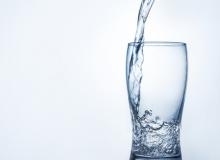Two or three things about blood sugar monitoring Xiaonuo and you, here's the first thing: Which people with diabetes need to strengthen blood sugar monitoring? In principle, all patients with diabetes should monitor their blood sugar regularly, especially the following people with diabetes during the National Day trip, blood sugar monitoring is even more difficult If you are relaxed, you need to strengthen blood sugar monitoring.
① All patients with type 1 diabetes; ② Newly treated patients with type 2 diabetes who are in the medication adjustment stage; ③ Patients undergoing intensive insulin therapy; ④ Patients treated with insulin pumps; ⑤ Patients with gestational diabetes; ⑥ Unable to respond to hypoglycemia Sensitive patients; ⑦Patients with large fluctuations in blood sugar. Second, if there are no conscious symptoms during travel, is it necessary for people with diabetes to monitor blood sugar? Accurate and comprehensive monitoring of blood sugar is an important basis for clinicians to understand the effects of drug treatment and guide clinical medication. However, some patients do not fully understand the importance of blood glucose monitoring. They often ignore blood sugar monitoring when they have no conscious symptoms, and only check their blood sugar when they have symptoms. This approach is obviously inappropriate.
First of all, people with diabetes may not have any symptoms when their blood sugar is mildly elevated, but over time it can still cause chronic complications;
Secondly, many elderly diabetic patients have no obvious symptoms (such as thirst, polydipsia, polyuria, etc.) even though their blood sugar is very high due to slow sense. If these people do not pay attention to monitoring their blood sugar, serious consequences will often occur.
Thirdly, the situation of "secondary failure of sulfonylureas" is very common in clinical practice. If a diabetic patient does not monitor blood sugar for a long time, he or she will not know that the drug he or she is taking has failed. Therefore, people with diabetes cannot follow their feelings when monitoring blood sugar during travel. The third thing is not to just measure fasting blood sugar, but also to monitor postprandial blood sugar. During the National Day trip, you can't just check fasting blood sugar to save money, but also to monitor 2 hours of postprandial blood sugar.
Medical research in recent years has confirmed that postprandial blood sugar is even more significant than fasting blood sugar. First of all, during travel, the eating habits of people with diabetes are quite different from usual times. Testing post-meal blood sugar can help you understand the dietary situation and prepare for adjustments to the next meal. Secondly, compared with fasting hyperglycemia, postprandial hyperglycemia is more closely related to cardiovascular complications of diabetes. Strictly controlling postprandial hyperglycemia can help prevent and treat cardiovascular complications in diabetic patients. Therefore, when monitoring blood sugar, diabetic patients should not only detect fasting blood sugar, but also detect postprandial blood sugar.

